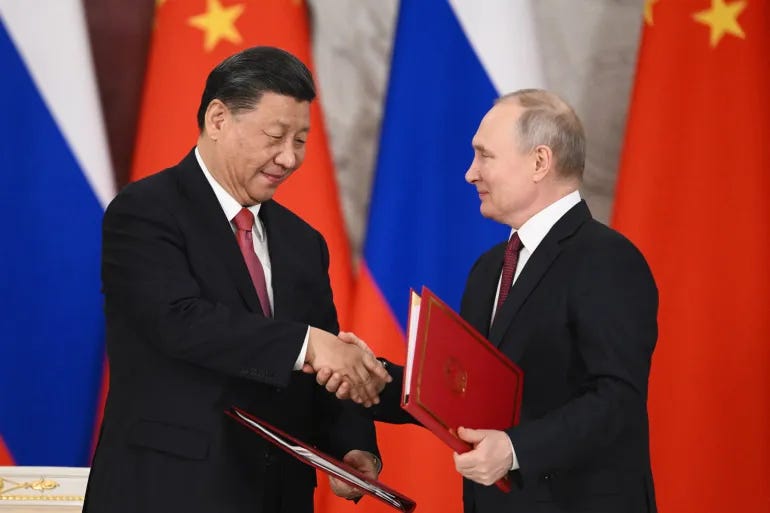BRICS Looks To Expand, De-Dollarize, De-weaponize Western Sanctions. Dollar Remains Strong
On January 1st, 2024 the organization, which previously only included Brazil, Russia, India, China, and South Africa, added four new members: Egypt, Ethiopia, Iran, and the United Arab Emirates (UAE).
WORLD - More countries are voicing their intention to join BRICS, a geopolitical bloc that Beijing has pushed to become a full-scale rival to the Western G7 bloc. BRICS is an intergovernmental organization that brings together the world's top developing countries.
On January 1st, 2024 the organization, which previously only included Brazil, Russia, India, China, and South Africa, added four new members: Egypt, Ethiopia, Iran, and the United Arab Emirates (UAE).
Current members include:
Brazil
Russia
India
China
S. Africa
Iran
Egypt
Ethiopia
UAE
Although Saudi Arabia was invited to join during the 15th BRICS summit, its approval has not yet been finalized.
According to the European Parliament on March 15th of this year,
"The group's decision to open the door to new members was taken at its Johannesburg summit in August 2023, sparking a debate about its growing international influence.
According to estimates, BRICS+, as the organisation has been informally called since its expansion, now accounts for 37.3 % of world GDP, or more than half as much as the EU (14.5 %).
However, besides an increase in economic power the new members could bring potential conflicts (Saudi Arabia/Iran or Egypt/Ethiopia) into the group, making the reaching of consensus on common political positions more difficult.
Since the new members would only contribute roughly 4 % to the group's cumulative GDP, the significance of the expansion should be seen beyond the purely economic effect, in the form of greater influence for the group and for developing countries as a whole within international organisations such as the United Nations, the World Trade Organization and the Bretton Woods institutions.
The EU engages with BRICS+ countries individually. For instance, it has strategic partnerships with Brazil, India, and South Africa, and is negotiating a free trade agreement with India.
On the other hand, current conflicts in Ukraine and Gaza show the divergent approaches to security taken by the EU and BRICS+.
The European Parliament has stressed that further political dialogue with the BRICS countries is needed, including on an individual basis.
In an exchange of views with European Commission representatives in October 2023, Members of the Parliament's Committee on International Trade (INTA) underlined the need to keep an eye on the group's expansion, especially considering the effect of a potential BRICS+ currency and the consequences for EU trade policy."







